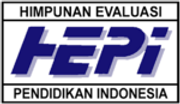The role of akidah akhlak teacher in embedding character of polite and decent language for elementary students
Abstract
Keywords
Full Text:
PDFReferences
Anggito, Albi dan Johan Setaiwan. (2018). “Metodologi Penelitian Kualitatif - Albi Anggito, Johan Setiawan - Google Buku.” CV Jejak: 268.
Chapman, R.S. (2000). “Children’s Language Learning: An Interactionist Perspective.” Journal of Child Psychology and Psychiatry 41: 33–54.
Dickinson, D.K., & Proche, M.V. (2011). “Relation between Language Experiences in Preschool Classroom and Children’s Kindergarten and Fourth-Grade Language and Reading Abilities.” Child Development 82: 870–86.
Habibah, Syarifah. (2015). “Akhlak Dan Etika Dalam Islam.” Jurnal Pesona Dasar 1(4): 73–87.
https://minsaba.wordpress.com/visi-misi/. “No Title.”
Hughes et al. (2008). “Teacher-Student Support, Effortful Engagement, and Achievement: A 3-Year Longitudinal Study.” Journal of Educational Psychology 100: 1–14.
Khadijah, Khadijah, and Media Gusman. (2020). “Pola Kerja Sama Guru Dan Orangtua Mengelola Bermain Aud Selama Masa Pandemi Covid-19.” Kumara Cendekia 8(2): 154.
Kuswanto, Edi. (2015). “Peranan Guru PAI Dalam Pendidikan Akhlak Di Sekolah.” MUDARRISA: Journal of Islamic Education 6(2): 194.
Ladd et al. (1999). “Children’s Social and Scholastic Lives in Kindergarten: Related Sphere of Influence?” Child Development 70: 1373–14000.
Lilliek Suryani. (2017). “Upaya Meningkatkan Sopan Santun Berbicara Dengan Teman Sebaya Melalui Bimbingan Kelompok.” e-jurnalmitrapendidikan.com 1(1).
Muhammad Anwar. (2018). Menjadi Guru Profesional. Jakarta: PRENADAMEDIA GROUP.
Munawwaroh, Azizah. (2019). “Keteladanan Sebagai Metode Pendidikan Karakter.” Jurnal Penelitian Pendidikan Islam 7(2): 141.
Noorlaila, I. (2010). Panduan Lengkap Mengajar PAUD. Yogyakarta: Pinus Book Publisher.
Rosihun Anwar. (2017). Pendidikan Anak Dalam Keluarga. Bandung: PT. Rosdakarya.
Santrock, J. W. (2007). Child Development. (M. Rachmawati & A. Kuswanti, Penerj.). Jakarta: Erlangga.
Suhono, & Utama, F. (2017). “Keteladanan Orang Tua Dan Guru Dalam Pertumbuhan Dan Perkembangan Anak Usia Dini (Perspektif Abdullah Nashih Ulwan Kajian Kitab Tarbiyyah Al-Aulad Fi Al-Islam).” Elementary 3(2): 107–119.
Sumarsih Anwar. “Pendidikan Karakter Di Madrasah Ibtidaiyah Modern Sahid, Bogor, Jawa Barat.” . Edukasi volume 12.
Thalib, S.B. (2010). Psikologi Pendidikan Berbasis Analisis Empiris Aplikatif. Jakarta: Kencana Prenada Media Grup.
Tugas Utami Handayani. “Membangun Jati Diri Bangsa Melalui Budaya, Pendidikan Karakter, Dan Sopan Santun Berbahasa.” : 234–49.
DOI: https://doi.org/10.18326/mdr.v13i1.20-34
Refbacks
- There are currently no refbacks.
Copyright (c) 2021 Kartika Dwi Astuti, Muqowin Muqowim

This work is licensed under a Creative Commons Attribution 4.0 International License.

This work is licensed under a Creative Commons Attribution 4.0 International License.
Program Studi Pendidikan Guru Madrasah Ibtidaiyah (PGMI)
Universitas Islam Negeri (UIN) Salatiga, Indonesia
Jl. Lingkar Salatiga Km. 2 Pulutan, Sidorejo, Kota Salatiga, Jawa Tengah 50716,
Telp. (0298) 323706 – Fax. (0298) 323433
Technical Support: jurnalmudarrisa@iainsalatiga.ac.id
P-ISSN: 2085-2061
E-ISSN: 2541-3457



